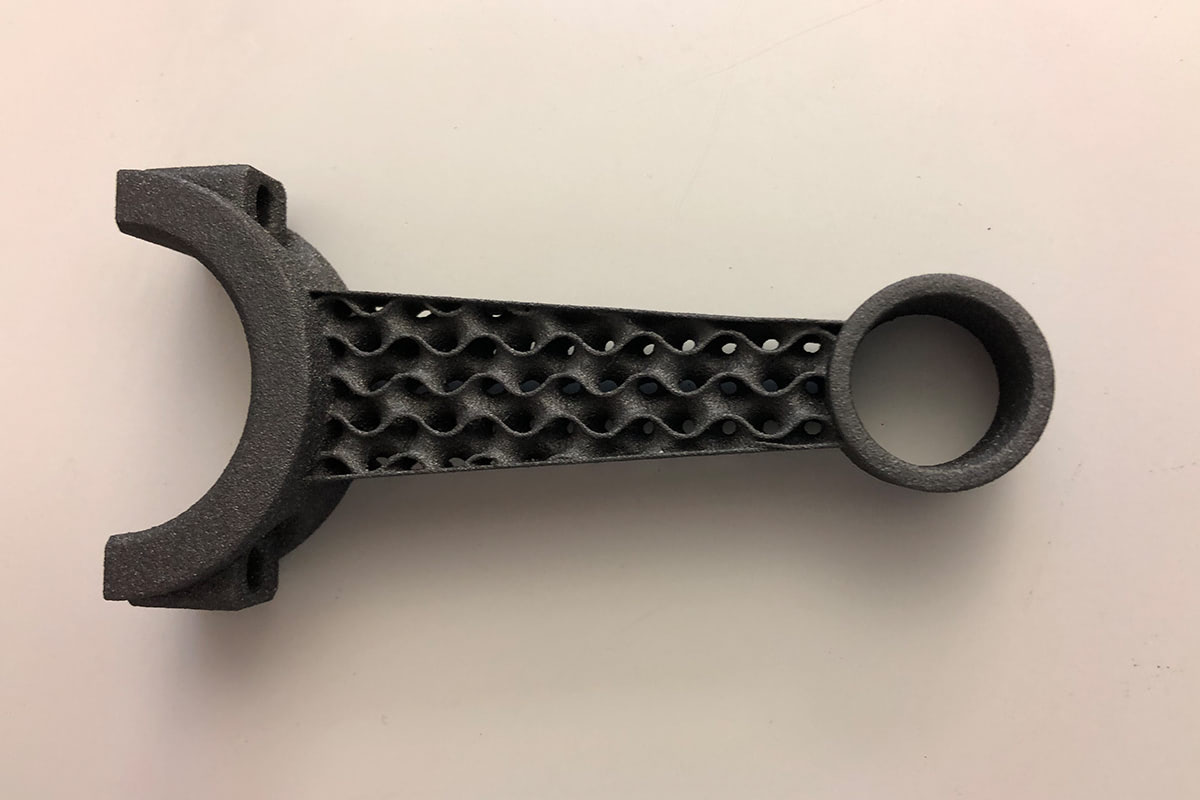A couple of months ago we took a look at a range of 3D printing materials with various electrical and thermal properties.
The articles focused on the use of conductive, and static-dissipative additive manufacturing feedstocks for a variety of different 3D printing technologies (but mostly filaments). It turns out that it’s quite easy to add a bunch of chopped carbon fiber to a filament and change the conductivity of the material.
As a reminder, conductive materials have low electrical resistance, and so charge flows quickly from one conductor to the next. With static-dissipative materials, the resistance is higher and the charge flows more slowly, reducing the impact of discharges on sensitive materials.
One of the articles in the short series focused on ESD (electrostatically dissipative) materials, which control the rate that charge is released from the material.
This is especially useful for design and manufacture of sensitive electronics which can be destroyed by unmitigated electrostatic discharge.
Well, just a month after we published those articles, ALM have announced a new polymer feedstock on the market that achieves the desired surface resistivity without using carbon fiber additives (like our previous examples), and instead uses graphite to modify the conductivity.
The feedstock is called, PA 830-ESD12, and as you can probably guess from that codename, it is a polyamide (nylon-11) and it is ESD-safe.
It is a sintered powder, so all you plastic SLS users now have one more option if you wish to print with ESD-safe materials. As mentioned, until recently, most options for 3D printed ESD materials were in the form of filaments.
The material has been developed between Advanced Laser Materials and RPS, who have been partnered with each other for development of new materials for SLS platforms since 2010.
“Many of our customers have been seeking an SLS material that delivers the quality and safety needed for electrostatic discharge applications,” said Donald Vanelli, President at ALM.
“We’ve created a material that allows for quick scalability, while ensuring parts are completed with a perfect finish and stay easy to machine.”
You can see a closeup of the finish below.
The polymer comes in black (with silver flakes), has a tensile strength of 29 MPa, bulk density of 0.49 g/cc and a sintered density of 1.1 g/cc, making it comparable to a standard nylon in terms of strength and weight.
It has a surface resistivity of between 2.4 x 10^3 Ω and 3.3 x 10^4 Ω square, which makes it fairly conductive as well as dissipative.
The powder manufacturers have plenty experience in high performance sintered plastics, as ALM developed the similar PA 603-CF carbon-fibre filled nylon material for use in Formula 1.
They are aiming this new product at those designing assembly fixtures in the semiconductor industry, designers of electronic products, and general applications requiring ESD capabilities.
This new material is compatible with all major SLS plastic printing systems such as those from 3D Systems, Farsoon, DTM, and Prodways and you can take a look at the material datasheet right here, if you would like to know more about the other material properties.

 亞洲大學3D列印研究中心
亞洲大學3D列印研究中心

